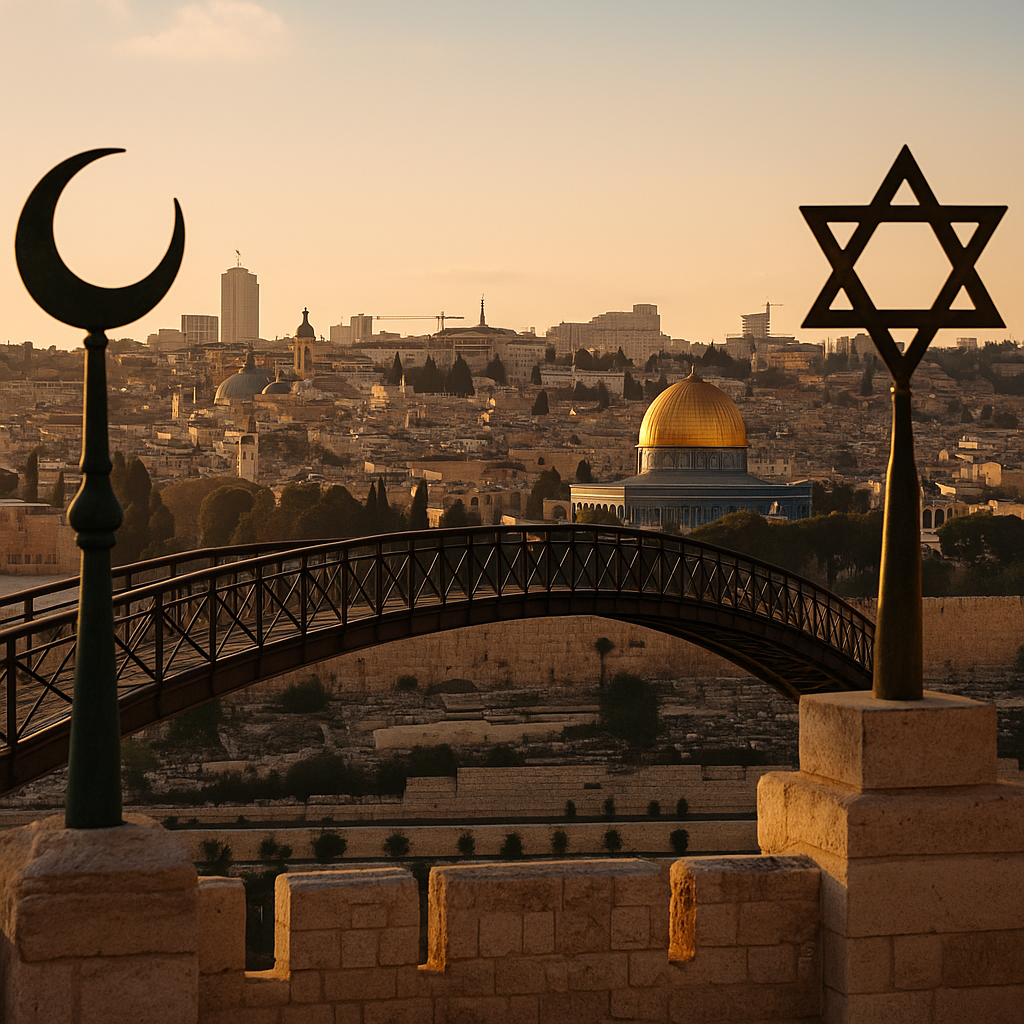By Ted Rosner
Diplomacy in the Middle East has historically been characterized by complexity, volatility, and ideological divisions. However, the signing of the Abraham Accords in 2020 marked a significant diplomatic breakthrough. Initiated under the auspices of the United States, the Accords normalized relations between Israel and four Arab states—the United Arab Emirates (UAE), Bahrain, Sudan, and Morocco. This diplomatic achievement represents a reconfiguration of alliances in the Middle East and highlights a shift toward pragmatic cooperation over ideological confrontation. The Abraham Accords not only changed the dynamics between Israel and individual Arab nations but also redefined the role of diplomacy in the region.
The Diplomatic Framework of the Abraham Accords
The Abraham Accords stand out as a successful example of multilateral diplomacy. The normalization agreements were brokered by the United States and built upon years of quiet, informal cooperation between Israel and the Arab Gulf states. U.S. diplomacy, particularly under the Trump administration, played a critical role by leveraging strategic incentives—such as arms sales to the UAE and diplomatic recognition of Moroccan sovereignty over Western Sahara—to bring the parties to the table. (Policy Project Members, 2022).
These accords deviated from the historical Arab consensus, which conditioned normalization with Israel on the resolution of the Palestinian issue, as outlined in the 2002 Arab Peace Initiative. Instead, the Abraham Accords signaled a new diplomatic doctrine where shared interests—particularly regional security, economic cooperation, and technology—outweighed longstanding political disputes. This change reflects a growing maturity in Middle Eastern diplomacy, where realpolitik increasingly guides foreign policy decisions.
The Role of Economic and Security Diplomacy
The Abraham Accords revealed the power of economic and security diplomacy in reshaping regional relations. The UAE and Bahrain, in particular, saw normalization as an opportunity to access Israeli innovation, investment, and defense technology. The Accords created new platforms for trade, tourism, education, and technological cooperation. For example, within one year of normalization, bilateral trade between Israel and the UAE surpassed $1 billion Barzani and Maital, 2021).
Security cooperation also played a critical role. The threat of Iranian regional expansion and its proxies created a common interest among Israel and the Gulf states. These nations recognized that strategic coordination against Iran could be more effective through open diplomatic ties. As such, the Abraham Accords formalized and institutionalized previously covert security alignments. This form of diplomacy, based on shared security concerns, has allowed regional actors to pursue stability without being hampered by ideological resistance or historical animosity.
Implications for Palestinian Diplomacy
While the Abraham Accords have been hailed as a triumph of diplomacy, they also underscored the declining centrality of the Palestinian issue in regional foreign policy. Many Palestinians and their supporters viewed the Accords as a betrayal, as normalization occurred without significant progress on Palestinian statehood or rights. The Palestinian Authority condemned the agreements, arguing that they violated the longstanding Arab consensus (Guzansky and Marshall, 2020).
However, the Accords have opened new diplomatic channels that could eventually benefit the Palestinian cause. Arab countries now have formal ties with Israel and, therefore, greater leverage to influence its policies. Furthermore, some normalization agreements included provisions to halt controversial Israeli plans, such as annexation of parts of the West Bank. In this context, the Abraham Accords present a new diplomatic paradigm—one that may not place the Palestinian issue at the forefront, but still offers indirect avenues for progress through engagement rather than isolation.
The Future of Regional Diplomacy
The Abraham Accords may pave the way for a broader diplomatic transformation in the Middle East. With the prospect of Saudi Arabia eventually joining the Accords, the trend toward normalization appears to be gaining momentum. Saudi officials have expressed openness to normalization, contingent on progress with the Palestinian issue and broader geopolitical incentives (Falconer, 2023). If successful, a Saudi-Israeli accord would further reshape regional diplomacy and potentially encourage other Muslim-majority nations to follow suit.
The role of the United States will remain crucial. Washington’s diplomatic efforts, incentives, and security guarantees are key to maintaining momentum and expanding the normalization process. Meanwhile, the Abraham Accords serve as a blueprint for how diplomacy can overcome decades of enmity and foster cooperative regional frameworks. While challenges remain—especially regarding public opinion and unresolved conflicts—the Accords have demonstrated that diplomacy, when grounded in mutual interests, can yield historic outcomes.
Building Bridges in a Fractured Region
The Abraham Accords represent a transformative moment in Middle Eastern diplomacy. By prioritizing shared interests in security and economic development, they have established a new model for resolving longstanding political divisions. Though the Palestinian issue remains unresolved, the Accords demonstrate that diplomacy can thrive even in the region’s most complex contexts. As the Accords continue to evolve and potentially expand, they may offer valuable lessons for future diplomatic endeavors—both in the Middle East and beyond.
Bibliography
Al Qassemi, Sultan Sooud. “What the UAE-Israel Normalization Means for Arab Identity and Culture.” Foreign Policy, September 2, 2021. https://foreignpolicy.com.
Ben-David, Calev. “Israeli and Emirati Universities Deepen Academic Ties.” Times of Israel, March 14, 2022. https://www.timesofisrael.com.
Elgamri, Elzain. “Media Narratives and the Abraham Accords: Shifting Public Discourse in the Arab World.” Arab Media & Society 32 (2022): 1–17.
Levenson, Michael. “Religious Leaders from Abrahamic Faiths Hold Historic Summit.” New York Times, February 4, 2022. https://www.nytimes.com.
Shavit, Uriya, and Hillel Yahel. “The Abraham Accords and the New Middle East.” Strategic Assessment 23, no. 4 (2021): 9–25. https://www.inss.org.il.Zogby, James. “Arab Attitudes on Normalization with Israel.” Zogby Research Services, November 2021. https://zogbyresearchservices.com.



